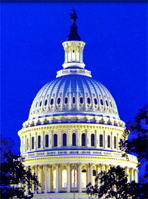E-Discovery and New Federal Rule of Evidence 502
By admin on October 1, 2008
 On September 19, 2008, President Bush signed S. 2450 into law and new Evidence Rule 502 was added to the Federal Rules of Evidence. The new rule provides for protections against waiver of the attorney-client privilege and work product immunity. The practical effect of the new legislation should be to reduce the often staggering legal costs corporations often incur in complex litigation, particularly in producing electronic discovery. In drafting the legislation, the Advisory Committee of Evidence Rules recognized that lawyers spend significant time and effort preserving the attorney-client privilege and work product. Under the prior rule, if a protected document was produced, even accidentally, there was a risk that a court would find a subject matter waiver that would apply, not only to the instant case and document, but to other cases and documents as well. Thus, lawyers placed an enormous amount of effort (and expense) into pre-disclosure document review to protect against inadvertent disclosure. Although waiver issues always have been a concern in document-intensive litigation (and will no doubt continue to be in the future), the increased discovery burden created by e-discovery brought this issue to the boiling point over the past two years. Under the new rule, the jeopardy to corporations (and their law firms for permitting a waiver) is substantially mitigated.
On September 19, 2008, President Bush signed S. 2450 into law and new Evidence Rule 502 was added to the Federal Rules of Evidence. The new rule provides for protections against waiver of the attorney-client privilege and work product immunity. The practical effect of the new legislation should be to reduce the often staggering legal costs corporations often incur in complex litigation, particularly in producing electronic discovery. In drafting the legislation, the Advisory Committee of Evidence Rules recognized that lawyers spend significant time and effort preserving the attorney-client privilege and work product. Under the prior rule, if a protected document was produced, even accidentally, there was a risk that a court would find a subject matter waiver that would apply, not only to the instant case and document, but to other cases and documents as well. Thus, lawyers placed an enormous amount of effort (and expense) into pre-disclosure document review to protect against inadvertent disclosure. Although waiver issues always have been a concern in document-intensive litigation (and will no doubt continue to be in the future), the increased discovery burden created by e-discovery brought this issue to the boiling point over the past two years. Under the new rule, the jeopardy to corporations (and their law firms for permitting a waiver) is substantially mitigated.
The new rule does not address the scope of the attorney-client privilege or work product protection. Rather, the new rule covers issues of scope of waiver, inadvertent disclosure, and the controlling effect of court orders and agreements.
